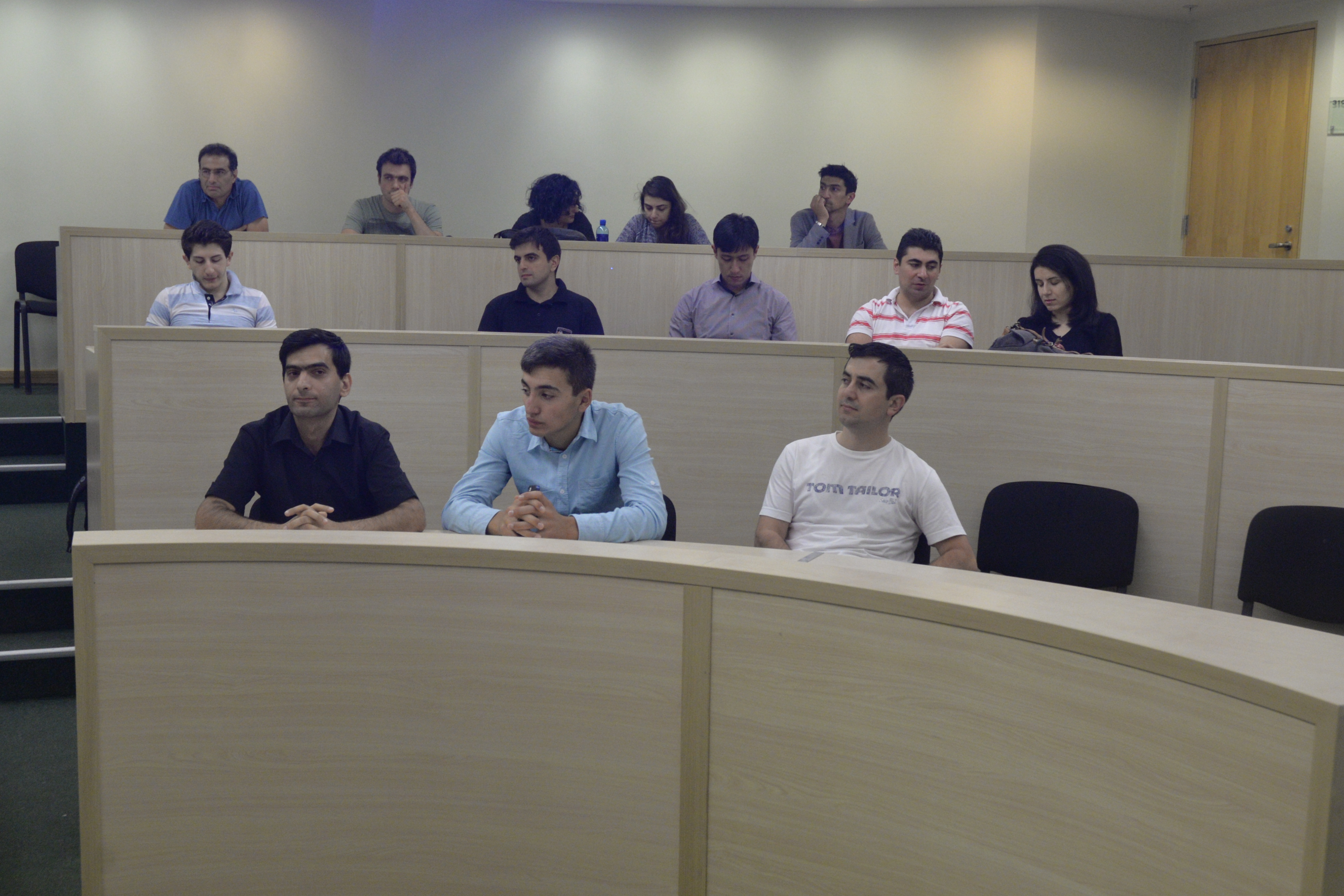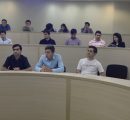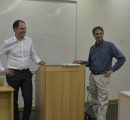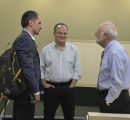
Public Lecture: Challenges in Planetary Mapping and Surface Navigation
< 1 min readYEREVAN, Armenia – On September 22, the American University of Armenia (AUA) hosted a public lecture regarding challenges in planetary mapping and surface navigation with Dr. Ara Nefian, a Senior Scientist at NASA Ames Research Center.
Dr. Ara Nefian has led the Lunar Mapping and Modeling from Apollo era imagery and was the principal investigator for the Lunar Albedo Reconstruction project. Since 2012, he also led the rover navigation team in supporting NASA future robotics Lunar mission and is a collaborator on the science team for Mars Curiosity rover mission.
In the past he worked with Intel Research Labs in Santa Clara, California involved in several projects including the Bayesian network for face and gesture recognition, audio-visual speech processing, web image clustering, and bioinformatics. In 2005, Dr. Nefian was part of the computer vision group within the Stanford racing team (Stanley) that won the DARPA Autonomous Navigation Grand Challenge. He has co-authored more than 90 research papers and holds ten US and international patents. Dr. Ara Nefian holds a Bachelor of Science from the Politehnica University Bucharest (1993) and a Master of Science in Electrical Engineering (MSEE) and PhD from Georgia Institute of Technology (1999).
During his presentation Dr. Ara Nefian focused on computer vision approaches for orbital mapping and rover localization suitable for autonomous planetary exploration in the absence of a GPS infrastructure.
Founded in 1991, the American University of Armenia (AUA) is a private, independent university located in Yerevan, Armenia and affiliated with the University of California. AUA provides a global education in Armenia and the region, offering high-quality, graduate and undergraduate studies, encouraging civic engagement, and promoting public service and democratic values.



